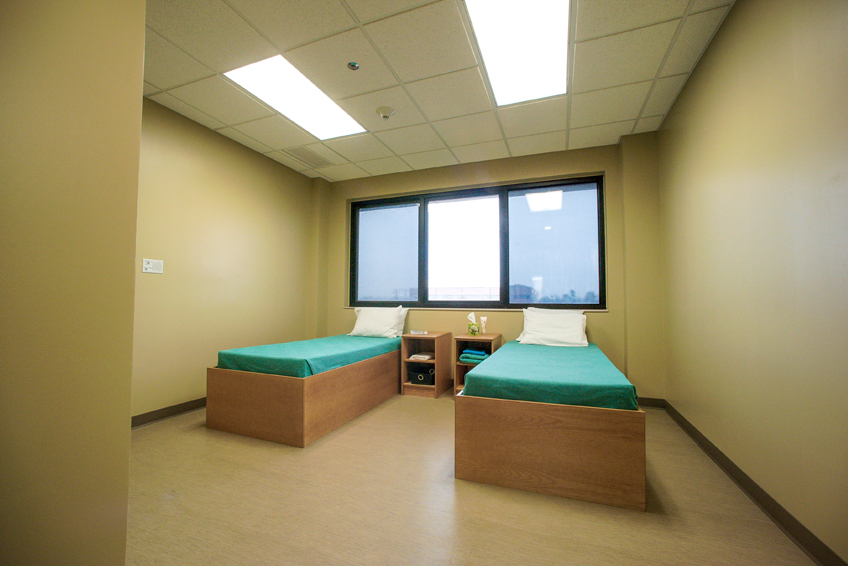You may have heard stories or seen portrayals of inpatient mental health facilities that depict a bleak and oppressive environment. However, it is important to recognize that these facilities play a crucial role in providing specialized care and support for individuals experiencing severe mental health challenges.
Inside these facilities, a range of treatment approaches are employed to help patients navigate their journey toward recovery. From the admission process to daily life and routines, there is a comprehensive system in place to ensure the well-being and progress of individuals.
But what exactly happens behind those closed doors? Let’s take a closer look at the world inside inpatient mental health facilities and explore the vital role they play in the lives of those seeking help.
The Importance of Inpatient Mental Health Care

Inpatient mental health care plays a crucial role in providing comprehensive and specialized treatment for individuals experiencing acute mental health challenges. When someone is going through a mental health crisis, it’s important to create a supportive and therapeutic environment that promotes healing and recovery. Inpatient facilities are designed to provide a safe space where individuals can receive intensive treatment and support.
The recovery process for individuals with acute mental health challenges can be complex and challenging. Inpatient care allows for a multidisciplinary approach, where professionals from various disciplines collaborate to develop personalized treatment plans.
These plans may include therapy, medication management, group support, and other evidence-based interventions. In an inpatient setting, individuals have access to round-the-clock care, ensuring that their needs are met promptly and effectively.
Moreover, the therapeutic environment provided by inpatient mental health facilities offers a structured and supportive atmosphere. This environment helps individuals develop coping skills, improve their self-care routines, and learn strategies to manage their mental health challenges. Inpatient care also provides a sense of community and connection with others who are going through similar experiences, reducing feelings of isolation and fostering a sense of belonging.
Understanding the Admission Process

To ensure a smooth and efficient process, it’s important to understand the admission process for inpatient mental health facilities. When seeking admission, individuals must meet specific admission criteria to ensure they receive the appropriate level of care. These criteria typically include the severity and nature of the mental health condition, the risk of harm to oneself or others, and the need for intensive treatment that can’t be provided on an outpatient basis.
The admission process begins with a thorough evaluation of the patient’s mental health status. This evaluation may involve a comprehensive psychiatric assessment, physical examination, and review of the patient’s medical history. The goal is to gather information about the individual’s symptoms, functioning, and any contributing factors to develop an accurate diagnosis and treatment plan.
During the evaluation, the healthcare team will consider various factors, such as the patient’s current mental state, history of mental illness, previous treatment experiences, and support systems. This information helps determine the appropriate level of care and treatment interventions needed for the individual.
Understanding the admission process allows individuals and their families to have a better understanding of what to expect when seeking inpatient mental health care. It also helps healthcare professionals ensure that patients are placed in the appropriate treatment setting to receive the best care possible.
Treatment Approaches in Inpatient Facilities

What are the different treatment approaches utilized in inpatient mental health facilities?
In inpatient mental health facilities, a variety of treatment approaches are utilized to address the complex needs of individuals with mental health conditions.
One approach commonly used is medication management, which involves the administration and monitoring of psychotropic medications to help alleviate symptoms and stabilize mood. Medication management is typically overseen by psychiatrists or other qualified medical professionals who carefully assess the individual’s needs and adjust medication dosages as necessary.
In addition to medication management, many inpatient facilities also incorporate holistic therapies into their treatment plans. These therapies focus on treating the whole person, including their physical, emotional, and spiritual well-being. Examples of holistic therapies commonly offered in inpatient mental health facilities include art therapy, yoga, meditation, and mindfulness exercises.
These approaches aim to promote relaxation, self-expression, and self-awareness, helping individuals develop coping skills and improve their overall mental health.
It is important to note that treatment approaches in inpatient facilities can vary depending on the specific facility and the needs of the individual. The goal of these approaches is to provide comprehensive and individualized care that addresses both the immediate symptoms and the underlying causes of mental health conditions.
Daily Life and Routines for Patients

Patients in inpatient mental health facilities follow structured daily routines to promote stability, routine, and therapeutic progress. These routines are designed to provide a sense of predictability and structure, which can be comforting for individuals struggling with mental health issues.
Each day typically begins with breakfast, followed by various therapeutic activities such as group therapy sessions, individual counseling sessions, and medication management. These activities aim to address the specific needs of each patient, helping them gain insight into their condition, develop coping skills, and work towards their recovery goals.
In addition to therapy, patients also engage in recreational activities, which serve as a form of relaxation and stress relief. These activities may include art therapy, yoga, exercise classes, and mindfulness exercises. Such activities not only promote physical well-being but also provide opportunities for patients to explore their creativity, express themselves, and engage in enjoyable and meaningful experiences.
Furthermore, daily routines in inpatient mental health facilities often incorporate meal times, where patients come together to eat and socialize. These meal times foster a sense of community and encourage social interactions, which can be important for individuals who may feel isolated or disconnected from others.
The Role of Staff Members in Patient Recovery

As patients in inpatient mental health facilities navigate their daily routines and engage in therapeutic activities, the role of staff members becomes essential in supporting their journey towards recovery. Staff support plays a crucial role in providing a safe and nurturing environment for patients to heal and grow.
The staff members in these facilities are trained professionals who use various therapy techniques to assist patients in their recovery process. They provide individual counseling sessions, group therapy, and medication management to address the specific needs of each patient.
By employing evidence-based practices, such as cognitive-behavioral therapy and dialectical behavior therapy, staff members can help patients develop coping strategies and improve their emotional well-being.
Moreover, staff members act as a source of encouragement and motivation for patients. They offer guidance, reassurance, and validation, which can be instrumental in fostering a sense of hope and empowerment. By establishing a therapeutic alliance with patients, staff members create a supportive and trusting relationship that enhances the recovery journey.
In addition to therapy techniques, staff members also play a vital role in coordinating care and collaborating with other healthcare professionals. They work alongside psychiatrists, psychologists, social workers, and nurses to ensure comprehensive and holistic treatment for patients.
Frequently Asked Questions

Are There Any Age Restrictions for Admission to Inpatient Mental Health Facilities?
There are age restrictions for admission to inpatient mental health facilities. The admission criteria vary depending on the facility, but treatment effectiveness is often a key factor in determining eligibility.
How Long Do Patients Typically Stay in an Inpatient Mental Health Facility?
On average, patients typically stay in an inpatient mental health facility for a few weeks to a few months. The length of stay depends on the individual’s needs and the effectiveness of their treatment.
Can Family Members Visit Patients During Their Stay in an Inpatient Mental Health Facility?
Yes, family members can visit patients during their stay in an inpatient mental health facility. Visiting hours are typically scheduled and there may be communication options available for patients and their families to stay connected.
Additionally, those seeking support or information from a Family Justice Center can inquire about resources to aid in navigating legal and community services.
Are There Any Restrictions on Personal Belongings That Patients Can Bring With Them to an Inpatient Mental Health Facility?
When staying at an inpatient mental health facility, there may be restrictions on the personal belongings you can bring. These restrictions are in place to ensure patient privacy and maintain a safe and therapeutic environment.
What Types of Aftercare Support Are Available for Patients After They Are Discharged From an Inpatient Mental Health Facility?
After you are discharged from an inpatient mental health facility, there are various aftercare resources available to support your transition back into the community. These resources focus on community integration and providing ongoing support for your mental health.
